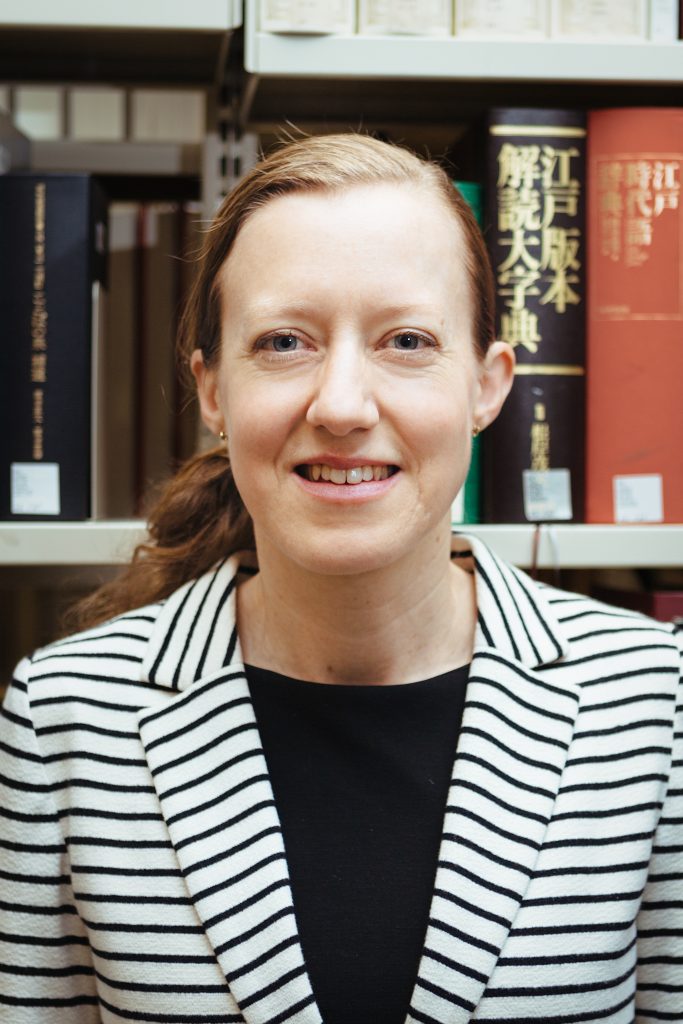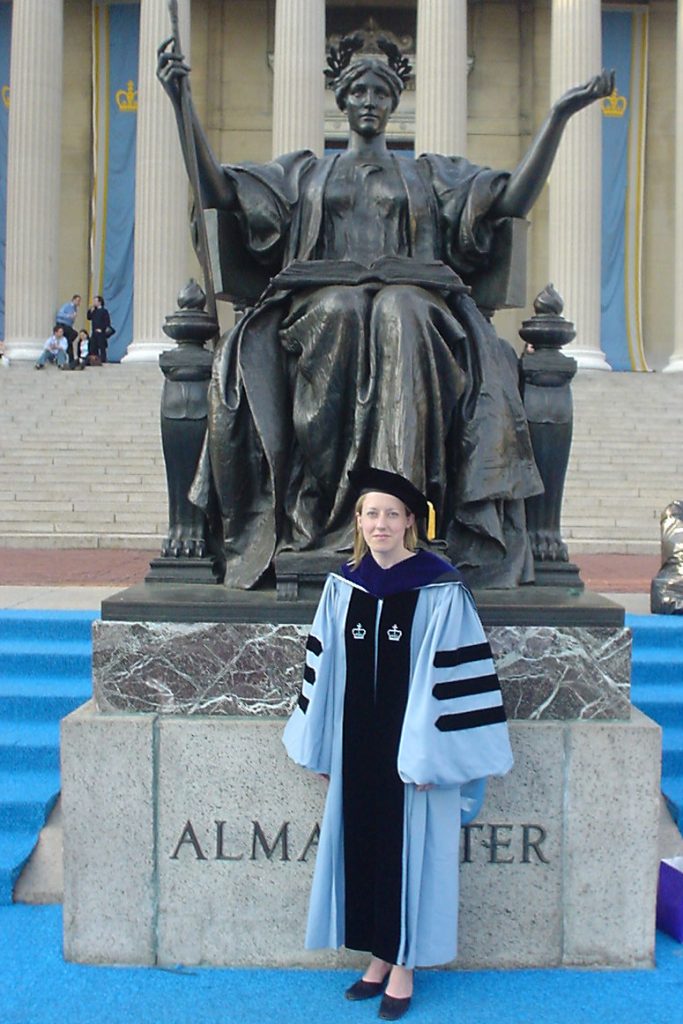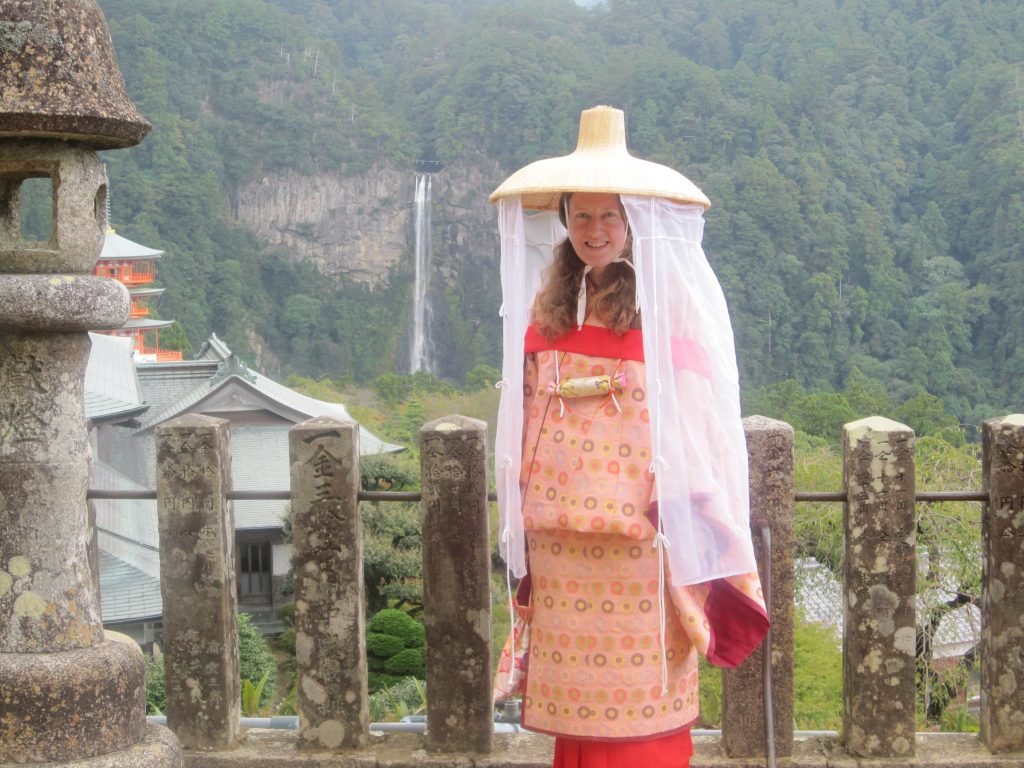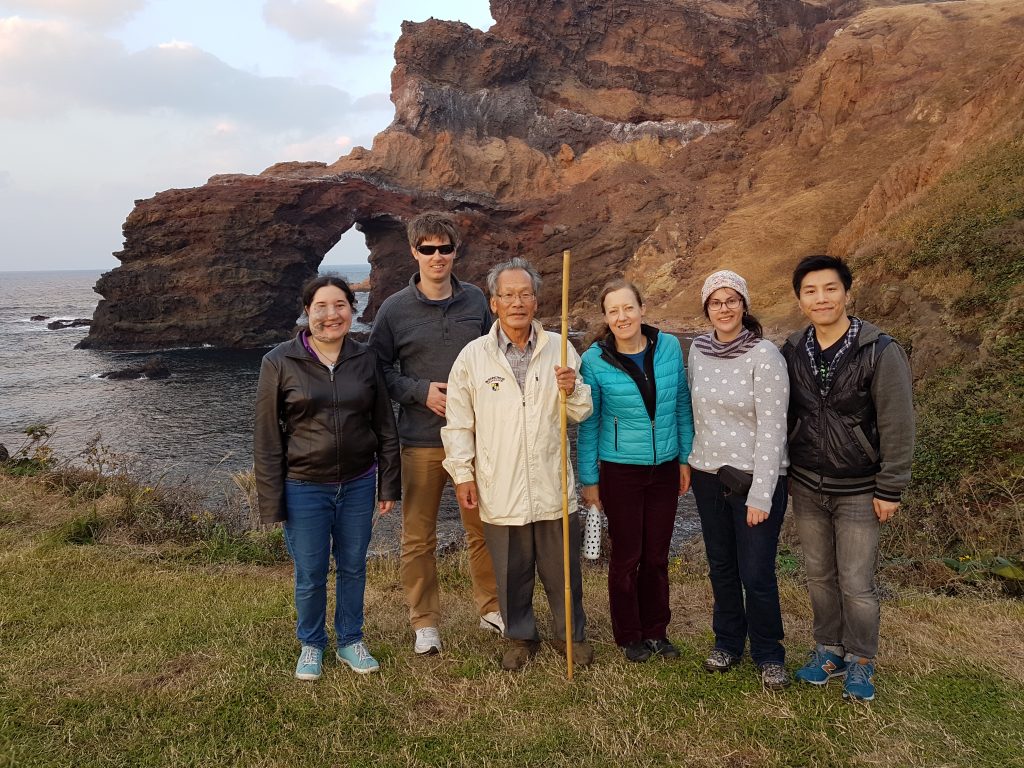We ask our instructors about their early lives, career development and proudest accomplishments. This interview features Dr. Christina Laffin, Associate Professor in Classical Japanese Studies.


Quick Facts:
- Notable Publication: Rewriting Medieval Japanese Women: Politics, Personality, and Literary Production in the Life of Nun Abutsu (Honolulu: University of Hawai‘i Press, 2013)
- W16 Courses:
- Teaching at UBC: Since January 2005
Can you explain to a non-expert what you research?
I work between the fields of literary study and historiography to consider the status of women in Japan, from the tenth century onwards, focusing on women’s writing, female education and literacy, and women’s professional work. I am interested in how, why, and what women wrote.


Alma Mater on the steps of Low Memorial Library at Columbia University during Convocation in 2005
How and why did you start your journey in Asian Studies?
In my final year of high school on Vancouver Island, I was selected to take part in the Pacific Rim Program, which sent recent BC graduates to Northeast and Southeast Asia to study language and culture and volunteer in elementary schools. I had taken one term of Chinese and was interested in studying in China but instead I was sent to Japan. I asked to be posted to Kyoto because I had read The Pillow Book by Sei Shōnagon and wanted to visit the old capital. After a year of studying Japanese intensively there, I abandoned my original plan to become a journalist and a scholarship at McGill because I heard that UBC had a great Japanese Studies program.
What was the experience for you learning a second language?
When I was told I was going to Kyoto, I knew only two Japanese words: arigato and genmaicha. The only resources available for study in my small island community were a few books and some antiquated cassette tapes which encouraged practice of katakana words like “haihiiru, erebeeta, esukareeta” (high heel, elevator, escalator). These didn’t help much, but being thrown into a family with a strong Kyoto dialect and no English forced me to learn quickly to survive. After returning, the Japanese language program at UBC gave me a strong foundation in grammar, which continues to serve me well in research and teaching. Being able to function in Japanese has opened up many doors for me throughout my career.


Reenacting the Kumano Pilgrimage, dressed as a medieval noblewoman in 2010
Was there a point in your journey you struggled or questioned yourself? What happened?
After completing my MA at the University of Tokyo, I was admitted to their PhD program. I spent months wondering whether I should remain in Japan for the foreseeable future, with my partner who was based in Japan, or return to North America and hope we could reunite later. It was thanks to the advice of past mentor (and current colleague) Joshua Mostow that I chose to leave Japan and move to New York to complete my doctoral studies. This positioned me better to find a job in Canada and my partner was later able to make his way to North America. The balancing act between professional and personal/family priorities is something women often face. While there is no right answer, much more needs to be done to support women in academia.
Is there a project that you are most proud of?
My first monograph was an effort to trace one woman’s life and show why there was a need to study medieval women and, more broadly, women before the modern period. The noblewoman I was researching, Nun Abutsu (1225-1283), was known for her literary talents and her strong personality–it seemed like writing about her might also serve as a tribute to the many inspirational women who had encouraged me over the years.


On a field visit with graduate students to Tsutenkyo Arch on the Oki Islands in 2016
In class we study about events that shape Asia. Have you witnessed any such event firsthand?
I experienced two disasters from a distance in Japan—the Great Hanshin earthquake of 1995 in while I was studying at the Kyoto Centre for Japanese Studies and the Great Tohoku earthquake, tsunami, and nuclear meltdown in 2011 while I was a postdoctoral fellow at the University of Tokyo Historiographical Institute. I also happened to be at graduate school in New York in September 2001 during the events of 9/11. I sometimes wonder if I am a walking disaster, but during both earthquakes I was lucky to suffer only minor damage to belongings. These events shifted my perception about what really matters (water, food, shelter, ability to communicate with family and friends) and allowed me to see how politicians and media exploit such catastrophes. These experiences also convinced me to be well prepared, so if disaster strikes, feel free to come to my house for supplies.
What change do you hope your work can make in the world?
I hope that we gain a greater appreciation of women’s contributions and a more balanced view of literary history by examining what women have written about their lives. Understanding more about women of the past is essential for us to know our history. Whether we look at academia or at corporations today, men continue to dominate the top ranks. It is important to remember that literary history is only a history of great white men because we have made it that way and it does not take much digging to find other stories which need to be told.


